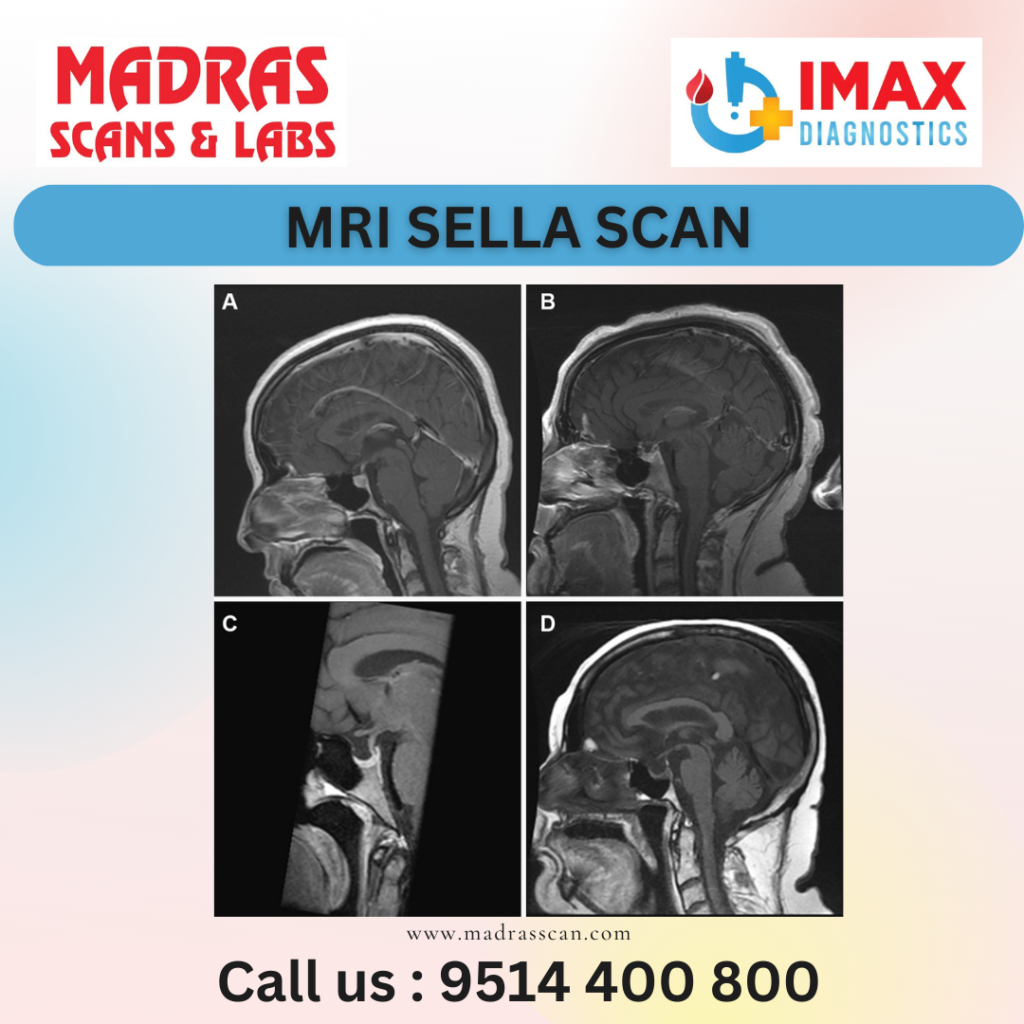
A magnetic resonance imaging (MRI) Sella scan is a type of imaging test that is used to visualize the pituitary gland and surrounding structures in the Sella turcica, which is a bony structure in the skull where the pituitary gland is located.
During an MRI Sella scan, a patient lies still on a table that slides into a large, cylindrical machine. The machine uses a powerful magnetic field, radio waves, and a computer to produce detailed images of the brain and surrounding tissues.
The pituitary gland is a small, pea-sized gland that produces hormones that regulate many bodily functions, including growth, metabolism, and reproduction. An MRI Sella scan can help diagnose various conditions that affect the pituitary gland, such as tumors, cysts, and other abnormalities.
The procedure is non-invasive and painless, and it typically takes between 30 minutes to an hour to complete. It is important to inform the healthcare provider of any metal implants or pacemakers prior to the MRI scan, as they can interfere with the magnetic field and pose a safety risk.
